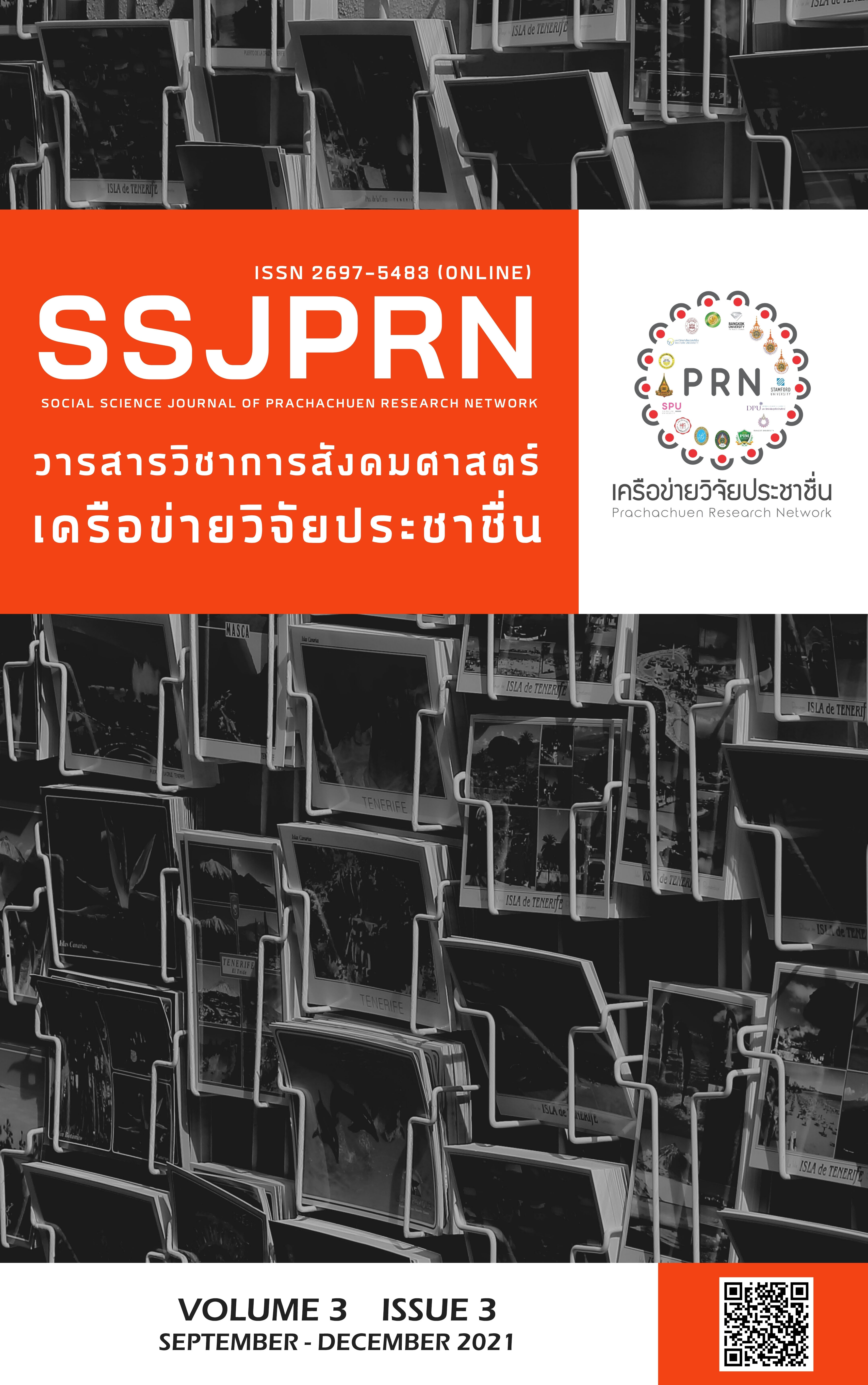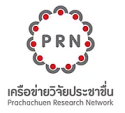ORGANIZATIONAL MODEL FOR SELLING INNOVATION PRODUCTS OF VOCATIONAK LEARNERS TO COMMERCIALIZATION
Keywords:
Organizational Model, Innovation, CommercialAbstract
The purpose of this research was to study the future scenarios of the organization to sell innovative products of vocational learners to commercialization. It was Future Research using EFR (Ethnographic Future Research), scenarios, as well as opinion survey and documentary research. For the sample group, the purposive sampling method was used, and the sample group was divided into 4 groups: 1) 14 people who were executives of the Bureau of Vocational Education, private sector executives, Ministry of Commerce experts, and experts in the management of government organizations; 2) 7 representatives of advisors of the project of learners submitting their work to the new generation’s invention contest “Best Innovation in Vocational Education” which was at a national level; 3) 15 representatives of vocational students who submitted their work to the new generation’s invention contest- “Best Innovation in Vocational Education”, which was at a national level; and 4) 250 stakeholders in the establishment of an organization to sell innovation products of students in vocational education to commercialization, consisting of teachers, students, entrepreneurs, and common people. The research results revealed that the operation of the organizational model should consist of 1) Policy and Leadership, 2) Personnel and Organization Capabilities 3) Holistic activities, 4) Agility operation, and 5) Organization Effectiveness.
References
ณัฐวัชร จันทโรธรณ์ และพงษ์ศักดิ์ พัวพรพงษ์. (2563). ประสิทธิผลขององค์การ. วารสารวิชาการมหาวิทยาลัยนอร์ทกรุงเทพ, 9(2), 1-9.
ธวัชไชย ลิ้มสุวรรณ และปรีชา วิหคโต. (2563). การพัฒนาระบบการบริหารสิ่งประดิษฐ์และนวัตกรรมอาชีวศึกษาสู่เชิงพาณิชย์ ในยุคดิจิทัลด้วยแพลตฟอร์ม. วารสารสันติศึกษาปริทรรศน์ มจร, 8(2), 459-473.
ธวัชไชย ลิ้มสุวรรณ. (2562). การบริหารสิ่งประดิษฐ์และนวัตกรรมอาชีวศึกษาสู่เชิงพาณิชย์ในยุคดิจิทัลด้วยแพลตฟอร์ม. วารสารวิชาการสถาบันการอาชีวศึกษาภาคใต้ 1, 4(1), 6-13.
บุญชม ศรีสะอาด. (2535). หลักการวิจัยเบื้องต้น (พิมพครั้งที่ 3). กรุงเทพ ฯ : สุวีริยาสาสน์.
พลฤทธิ์ จินดาหลวง. (2560). การพัฒนารูปแบบการบริหารจัดการของวิทยาลัยอาชีวศึกษาลำปางด้วยหลักธรรมาภิบาล (รายงานการวิจัย). ลำปาง: วิทยาลัยอาชีวศึกษาลำปาง.
สำนักวิจัยและพัฒนาการอาชีวศึกษา. (2557). คู่มือการดำเนินงานสิ่งประดิษฐ์อาชีวศึกษา. กรุงเทพฯ: สำนักงานงานคณะกรรมการอาชีวศึกษา.
สำนักวิจัยและพัฒนาการอาชีวศึกษา. (2563). Thaiinvention. สืบค้นจาก http://thaiinvention.net/
สุภางค์ จันทวานิช. (2556). การวิเคราะห์ข้อมูลในการวิจัยเชิงคุณภาพ (พิมพ์ครั้งที่ 11). กรุงเทพฯ: โรงพิมพ์แห่งจุฬาลงกรณ์มหาวิทยาลัย.
สุวชัช พิทักษ์ทิม. (2560). การสร้างจิตวิญญาณความเป็นผู้ประกอบการภายในองค์การของธุรกิจโรงแรมในประเทศไทย. (วิทยานิพนธ์ปริญญามหาบัณฑิต, มหาวิทยาลัยศิลปากร).
อัจจิมา ศุภจริยาวัตร. (2560). รูปแบบโครงสร้างองค์การการจัดการทรัพยากรมนุษย์ เทคโนโลยี และการจัดการที่ทำให้สินค้าโรงเรียนประชารัฐสามารถจำหน่ายได้. (วิทยานิพนธ์ปริญญาดุษฎีบัณฑิต, วิทยาลัยพาณิชยศาสตร์ มหาวิทยาลัยบูรพา).
Chiu, S-K. & Chang. K.F. (2009). Organizational structure, support mechanism, and commercialization performance A governance perspective. International Journal of Commerce and Management, 19(3), 183-194.
Datta, A., Reed, R., & Jessup, L. (2013). Commercialization of innovations: an overarching framework and research agenda. American Journal of Business, 28(2), 147-191.
Dhliwayo, S. (2010). The Entrepreneurial Organization. Frontiers in Entrepreneurship. Springer Heidelberg Dordrecht London New York.
Guest, G., Bunce, A., & John, L. (2006). How many interviews are enough?: An experiment with data saturation and variability. Field Methods, 18(11), 59-82.
Kim, S. K., Lee, B.G., Park, B.S. & Oh, K.S. (2011). The effect of R &D, technology commercialization capabilities and innovation performance. Technological and Economic Development of Economy, 17(4), 563-578.
Metaprofiling. (2013). The Entrepreneurial Organization: What it is and why it is matters. Metaprofiling Ltd.
Morse, J.M. (1994). Designing funded qualitative research. In N.K. & Y.S. Lincoln (Eds), Handbook for Qualitative Research (2nd ed.), 220-235.
Perkmann, M., Tartari, V., Mckelvey, M., Autio, E., Brostrom, A., D’Este, P., Fini, R., Geuna, A., Grimaldi, R., & Hughes, A. (2013). Academic engagement and commercialization: A review of the literature on university-industry relation. Research Policy, 42(2), 423-442.
Downloads
Published
How to Cite
Issue
Section
License
บทความที่ได้รับการตีพิมพ์เป็นลิขสิทธิ์ของวารสารวิชาการสังคมศาสตร์เครือข่ายวิจัยประชาชื่น







